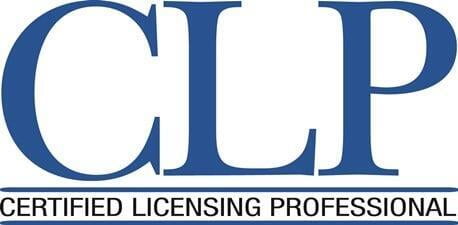
Written by Laura Dempsey
The Commercialization Team at Wright Brothers Institute (WBI) has years of experience in issues of intellectual property, patents, technology transfer and transition, and facilitating partnerships between the Air Force Research Laboratory (AFRL) and industry, academia, and other non-traditional partners.
Recently, three members of the team went the extra mile and gained entrance to a very elite club: Certified Licensing Professionals (CLP). With the support of WBI, Director of Commercialization Meghan Sheehan, Intellectual Property Program Manager Robert Prosak, and Industry Outreach Program Manager René Meadors earned the CLP designation, giving WBI the rare distinction of employing three CLPs. A recent scan of CLP holders within the state of Ohio found just 16, with only one other Partnership Intermediary Agreement (PIA) that employed CLPs to promote technology transfer and transfer of Air Force technologies. Earning the CLP designation requires passing a notoriously difficult exam with a success rate of just 65 percent each administrative year.
With these three CLPs in its employ, WBI proves its commitment to advancing technology transfer and transition for its clients. CLP credential holders have demonstrated expertise in five relevant domains: Opportunity Assessment; Development and Valuation; Intellectual Property Protection; Agreement Development and Drafting; and Negotiation and Agreement Management.
According to Certified Licensing Professionals Inc., “The CLP program was created to publicly recognize the licensing professional’s experience and qualifications as well as their education and professional development. The CLP program focuses on the licensing professional’s individual development on internationally applicable standards, ethics, and excellence while also providing greater visibility to the licensing profession with added credibility and prestige.”
Professional Certification can be defined when there is a body of knowledge, skills and abilities whose mastery is not readily achieved by laypersons. In addition, certification requires there be a recognized professional credentialing organization that establishes a code of ethics as well as certification tests to show mastery of the profession’s body of knowledge.
Maintaining a CLP requires recertification every three years and a mandatory 40 “credits” that can be earned by publishing licensing-related articles, presenting at relevant conferences and attending industry-related meetings.
